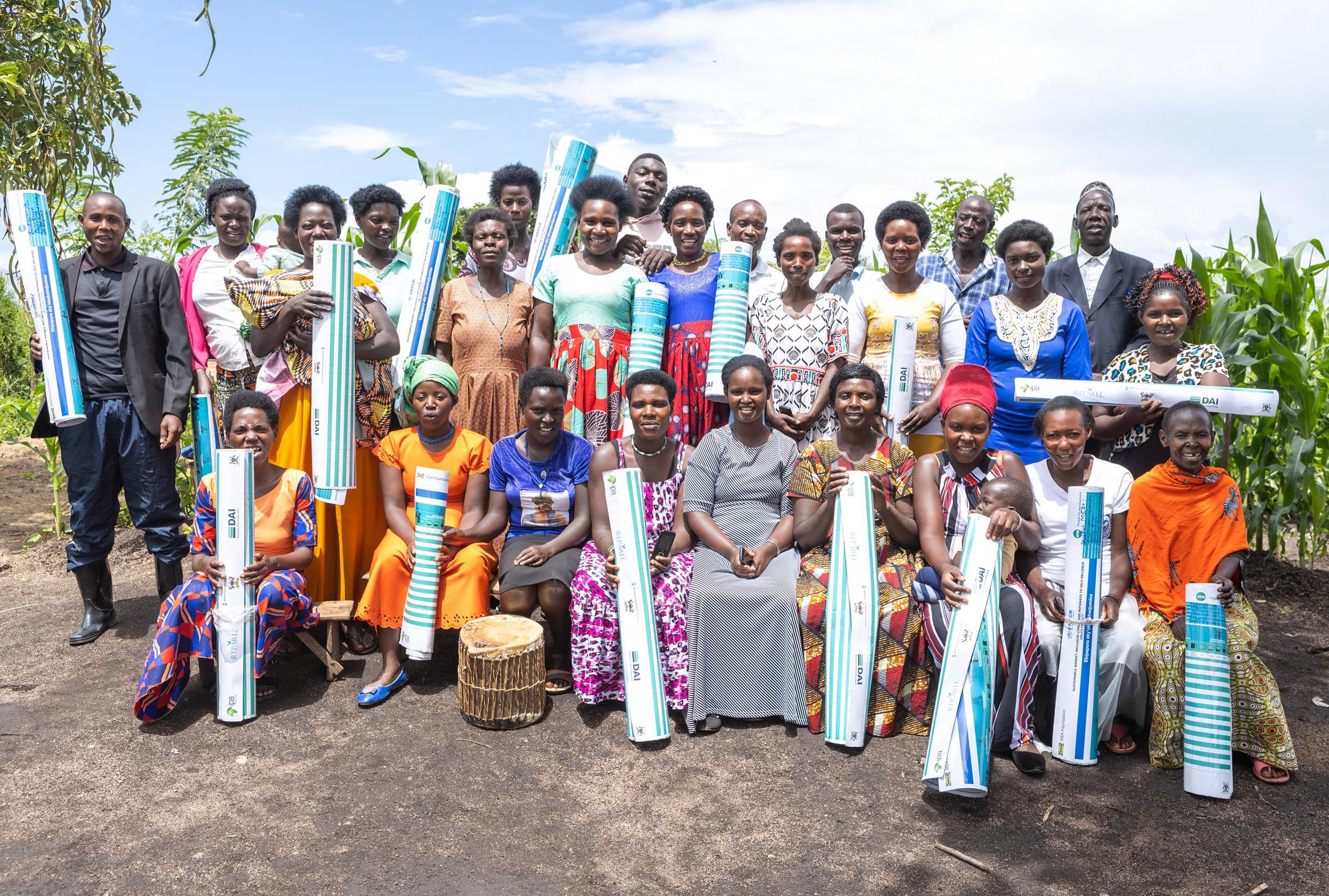The saying “it takes a village to raise a child” can be seen in the face of multiple adversities and social cohesion in communities that live closely together. Transmission of such messages is conveyed to create healthy environments and encourage people to build better livelihoods and realise their hopes and dreams.
In Masorro Village, one of the most vulnerable villages selected for the Sustainable Market Inclusive Livelihood Pathways to Self-Reliance (SMILES) project in Western Uganda, exists a 27 member-group, two of who are male, that lived at loggerheads with each other for more than five years.
The disharmony in the community was deeply rooted in the lack of proper ways to resolve and manage conflict, sparking and intensifying tension among families, trickling down to becoming the biggest cause of the low socioeconomic status of people in Masorro village.
We were infused in poverty with barely any ongoing economic activities. Some of us had no phones for communication or could barely afford any monetary transactions. We couldn’t access services related to our health or safety.
Janet Nampa, Chairperson of the Masorro Tukwatanitse savings group in Uganda.
Amidst this disarray, a silver lining was drawn by the induction of the IKEA Foundation-funded SMILES project. As part of the project design, a randomised criterion in selection of the right project participants was implemented which gave birth to the Masorro Tukwatanitse Group, translated in the local Runyakitara language as “Let us unite”. “Ironically, the selected participants in our group lived in discordance and antagonism. Cooperation among us was a myth and so we needed a group name that would combine our efforts and unify us to build our community.” Clarifies Janet.
The group received trainings in Farmer Field and Business School, received consumption support for food plus other basic needs, and mobile phones from which they receiveddigital literacy. The majorly cited training was coaching,ranging from topics in ‘Exploring and Sharing Household Responsibilities’, ‘Basics of Gender’, ‘Conflict Management and Negotiation’, ‘Saving Group’, ‘Setting SMART Goals’, ‘Child Growth and Development’, and ‘Self-efficacy’

As a group, we learnt different methods of farming practices and how we can produce our own pesticides and manure. Additionally, operating a phone was quite difficult; however, the digital literacy training assisted us on how we can handle the phones and how we can make joint decisions for our growth.
States Jemima Ainembabazi, a group member.
“The consumption support we received helped us to access food and other basic items. It also supported us to diversify through saving for investments and in other ventures such as poultry.” Explains Annet Nasimirechi, a group member.
Uniquely about the pre-coaching sessions, one of the primary topics aided the group participants to build rapport, maintain and enrich relationships amongst themselves and within their households through the ‘buddy support mechanism’ that fostered social cohesion within the group and in the larger community.
“We were passers-by to each other, breeding rumours and animosity through accusations of witchcraft, gender-based violence, child neglect, disagreements, and alcoholism which had caused social fragmentation in the community.” Says Janet Nampa.
I had no peace in my household because of alcoholism but after the coaching sessions, I was encouraged to quit drinking. I have now been sober for three months and it’s a great feeling.
Confesses Joseph Amanyire, a group member.
“After attending the coaching session on ‘sharing household responsibilities’, my husband regularly stays home to support me with household chores, especially when I am attending to the SMILES project activities,” says Doreen Mbabazi, a group member.
Prepared with the conflict resolution skills, participants reconciled household misunderstandings and extended harmony to the wider community. The coaching sessions and graduation maps facilitated strategic planning, shedding light on household realities and opportunities for effective action for future prospects.
The Masorro Tukwatanitse Group continues on their path to peaceful coexistence by creating psychosocial groups that embrace diverse forms of expression such as music, dance and drama. They plan to continue supporting each other in cases of numerous crises such as tragedy, household and personal issues.

“We compose motivational songs to build and strengthen our relationships and enhance our psychosocial well-being. In the near future, we hope to purchase custom-tailored uniforms and start performing in different community functions to gain an income in order to sustain the group.” Explains Janet Nampa.
This knowledge gained will ensure their sustained journey towards long-lasting relations and sustainable livelihoods. The once disjointed community now stands testimony to the SMILES project’s transformative intervention which is reassuring resilience amongst participants and the community in which they reside.




